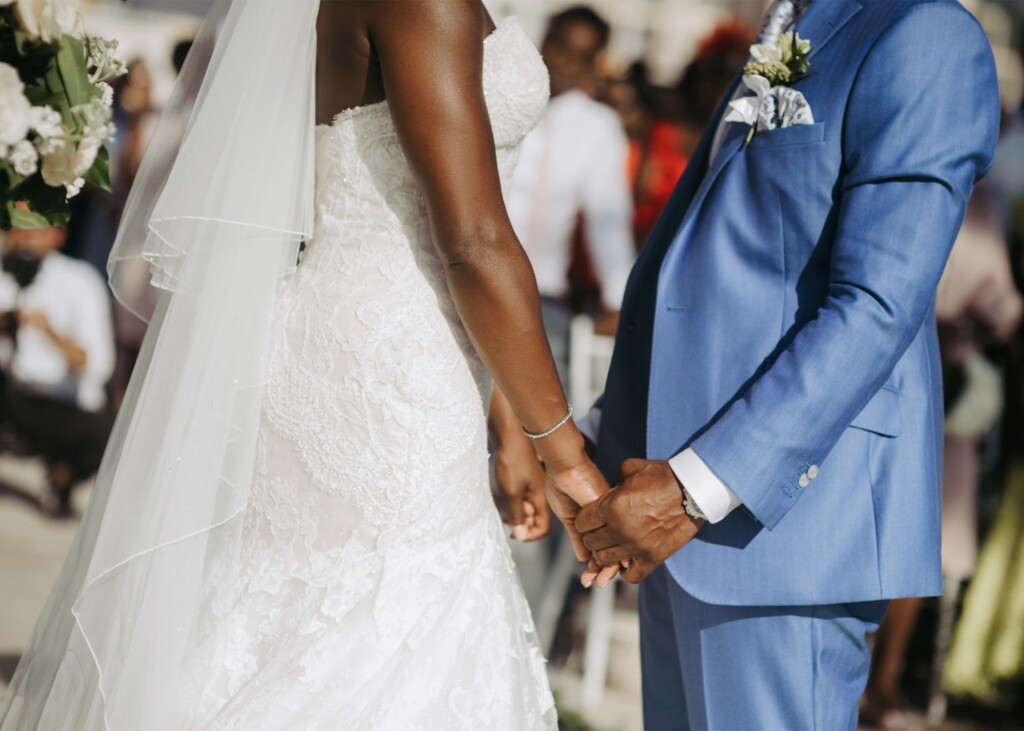I was in the middle of performing a wedding ceremony when my daughter Annie, who was 9 at the time, started frantically waving at me.
Since she was a junior bridesmaid, Annie was standing up front with the bride, the groom and one confused father.
What could possibly be so important that Annie needed to interrupt the wedding? I gave her a look that silently communicated “What?”
And then she mouthed the words, “I’m bored.” Apparently, my wedding sermon wasn’t interesting enough for her.
But the best part was yet to come: the vows. There’s nothing boring about the traditional marriage vows that have been around for centuries and usually end up meaning even more to couples later in their marriage than on the day of the wedding.
These days, some couples write their own vows — including humorous ones to make their “audience” laugh. But vows like “I’ll love you as much as I love my dog” and “I promise to like your selfie within a reasonable time frame” don’t quite meet the depth and meaning of “till death do us part.”
If you’re planning to marry, take a close look at the meaning of your vows. And if you’ve been married a long time, why not revisit your promises to each other? Maybe you can even recite them again at a special anniversary.
Traditional marriage vows
“I, _____, take thee, _____, to be my wedded wife (husband), to have and to hold from this day forward, for better, for worse, for richer, for poorer, in sickness and in health, to love and to cherish, till death do us part.”
I take thee to be my wedded wife (husband)
This phrase is about free will. This isn’t a forced marriage. You’ve selected this person. This voluntary decision establishes personal responsibility for your choice.
Why does this matter? Because God isn’t a matchmaker. He doesn’t predetermine who you’ll marry. He doesn’t oversee the e-heavenly dating service. There is no such thing as a soul mate or “the one” — an ideal person God chose just for you. As 1 Corinthians 7:39 suggests, you have free will when selecting a mate, just as you have free will to choose to follow God or not.
If you deeply believe that your marriage is a “match made in heaven,” it creates unrealistic expectations. If God preordained “the one” you will marry, then it must be the perfect choice for you, right?
But what happens when imperfections show up? People quickly blame God for their marriage problems and their spouse’s failings. They might think:
- What was God thinking?
- Maybe I didn’t hear God correctly.
- Maybe I was too young or spiritually immature to discern God’s will.
If you believe you didn’t really choose your spouse, it’s easy to use the soul-mate illusion to justify ending a marriage. God does not choose your spouse but He firmly stands by the commitment you make to your spouse. Mark 10:9 says, “What therefore God has joined together, let not man separate.”
“Wedded” means connected, attached, united, joined, yoked. So the phrase “I take thee to be my wedded wife (husband)” is really saying: “I choose you as my teammate! I freely unite myself to you for life.”
To have and to hold from this day forward
“To have and to hold” is a property rights legal phrase that defines “the extent of the interest that is granted or conveyed and the conditions affecting it.” But as part of the traditional marriage vows, this isn’t a statement of ownership; it refers to belonging together.
Genesis 2:24 (KJV) says, “Therefore shall a man leave his father and his mother, and shall cleave unto his wife: and they shall be one flesh.” The Greek word for cleave (proskollaó) means to join or unite — to glue one thing to another. “To have and to hold” means you’re promising a close marital bond that can’t be broken.
In addition, the verb “to have” means to enjoy a sexual relationship. But the meaning is deeper than that. It also means to comprehend, to understand, to know. According to the Bible, sex is all about knowing the other person inside and out and in all kinds of contexts. The Hebrew word used is yada`, which means a thorough, exhaustive knowledge that embraces complete mutuality and total sharing in every area of life — emotionally, spiritually, mentally and physically. Think of Song of Solomon 2:16: “My beloved is mine, and I am his…”
The historical meaning of the verb “to hold” is “to keep, tend, watch over.” It means to take care of something, like you would tend a garden. Ephesians 5:29 talks about “nourishing” your spouse. Nourishing means to help your spouse become the person God created them to be.
“To hold” also means to watch over your spouse, defend your spouse and keep your spouse from harm. That might include protecting them from little things, such as rodents, noises, intruders, angry family members or too much busyness — or big things, such as infidelity, pornography, abuse or addiction.
For better, for worse, for richer, for poorer, in sickness and in health
This portion of the traditional marriage vows is a promise to stay faithful and committed no matter what happens. 1 Corinthians 7:28 says, “Those who marry will have worldly troubles.” Life will have its ups and downs, good times and hard times. But traveling this journey together as husband and wife is what grows and deepens our love for each other.
To love and to cherish
Love means you will sacrifice — you’ll give up something highly valued for the sake of someone else considered to have great value. Cherish means to recognize your spouse’s incredible value as a human being, as a child of God and as the one person you’ve chosen to spend your life with.
Till death us do part
The phrase “until death do us part” means you’re making a lifelong commitment — that death should be the only thing that dissolves the marriage bond. This vow was really written by God in Matthew 19:4-6.
“Have you not read that he who created them from the beginning made them male and female, and said, ‘Therefore a man shall leave his father and his mother and hold fast to his wife, and the two shall become one flesh’? So they are no longer two but one flesh. What therefore God has joined together, let not man separate.”
As you consider or revisit these promises, you’ll understand why traditional marriage vows have endured. Making these vows before God — and keeping them — is deeply meaningful and is worth any effort involved.
© 2021 Focus on the Family. All rights reserved. Originally published on FocusOnTheFamily.com.


